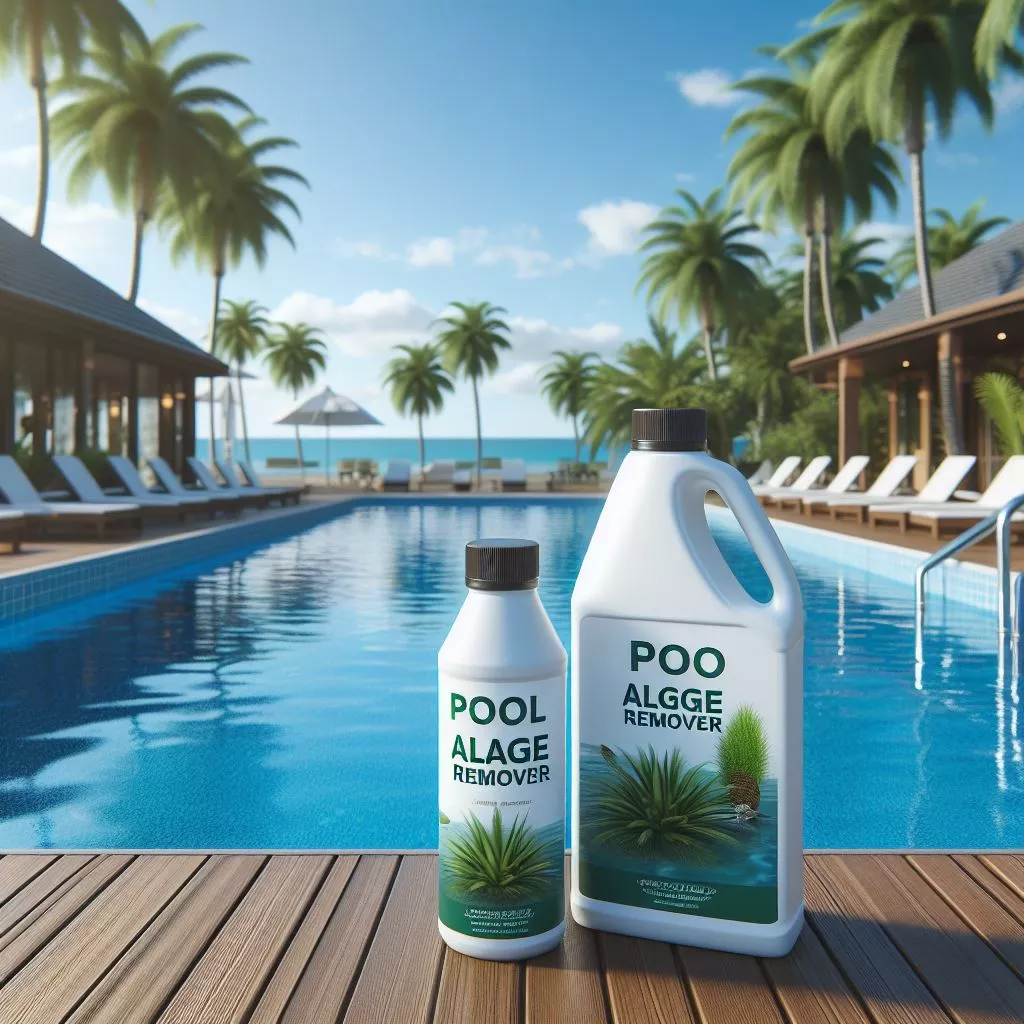Algae growth is a common problem in swimming pools, leading to water discoloration, slippery surfaces, and potential health hazards for swimmers. Pool algaecides are chemical agents designed to control and prevent algae growth, contributing to the maintenance of clean and safe pool environments. Beyond their primary function, algaecides also offer environmental benefits that are often overlooked. This article aims to explore the environmental advantages of using pool algaecides and their role in promoting sustainable pool maintenance practices.

Algaecides and Algae Control
Pool algaecides are formulated to target and eliminate algae, preventing their growth and proliferation in swimming pools. These chemical compounds work by disrupting the algae’s cellular structure or inhibiting its ability to photosynthesize, effectively halting its growth and spread in pool water.
Reduction of Chemical Usage
One of the significant environmental benefits of using pool algaecides is the reduction of overall chemical usage in pool maintenance. By effectively controlling algae growth, algaecides help minimize the need for higher concentrations of chlorine and other sanitizing chemicals, leading to a decrease in chemical consumption and potential environmental impact.
Preservation of Water Quality
Algae growth not only compromises water clarity and aesthetics but also affects water quality by consuming oxygen and releasing organic compounds. Pool algaecides play a crucial role in preserving water quality by preventing algae blooms and maintaining balanced chemical levels, thus creating a healthier aquatic environment for both swimmers and aquatic life.
Energy Conservation
Algae growth in swimming pools can increase filtration and circulation system workload, requiring more energy for pumps and equipment to maintain water quality. By effectively controlling algae with algaecides, pool operators can optimize filtration and circulation processes, leading to energy savings and reduced environmental footprint associated with pool operation.
Prevention of Water Wastage
Algae outbreaks often necessitate draining and refilling pools to address water quality issues, leading to significant water wastage. Pool algaecides help prevent algae-related water contamination, reducing the frequency of pool draining and refilling, thus conserving water resources and promoting sustainable water management practices.
Protection of Pool Infrastructure
Algae growth can compromise the integrity and longevity of pool infrastructure, including surfaces, tiles, and equipment, by promoting biofilm formation and corrosion. Algaecides aid in protecting pool infrastructure by preventing algae colonization and minimizing the risk of damage, thereby extending the lifespan of pool components and reducing the need for replacements.
Eco-Friendly Formulations
Manufacturers have developed eco-friendly formulations of pool algaecides that are biodegradable and pose minimal risk to the environment. These environmentally friendly algaecides offer effective algae control while minimizing adverse effects on aquatic ecosystems and surrounding environments.
Regulatory Compliance
Utilizing pool algaecides in accordance with industry regulations and guidelines ensures compliance with environmental standards and practices. By employing approved algaecide products and adhering to recommended application rates and practices, pool operators can demonstrate their commitment to environmental stewardship and regulatory compliance.
Education and Awareness
Promoting awareness among pool owners, operators, and maintenance personnel about the environmental benefits of pool algaecides encourages responsible usage and fosters a culture of environmental conservation within the pool industry. Educating stakeholders about the importance of algae control and sustainable pool maintenance practices contributes to long-term environmental protection and sustainability efforts.
Conclusion
In conclusion, pool algaecides play a multifaceted role in environmental protection and sustainable pool maintenance. By effectively controlling algae growth, reducing chemical usage, preserving water quality, conserving energy and water resources, protecting pool infrastructure, and promoting eco-friendly formulations and regulatory compliance, algaecides contribute to creating cleaner, safer, and more environmentally sustainable swimming pool environments. Embracing the environmental benefits of pool algaecides and integrating them into pool maintenance practices fosters responsible stewardship of aquatic ecosystems and promotes the long-term sustainability of pool operations.

 Instant
Quote
Instant
Quote Email
Us
Email
Us